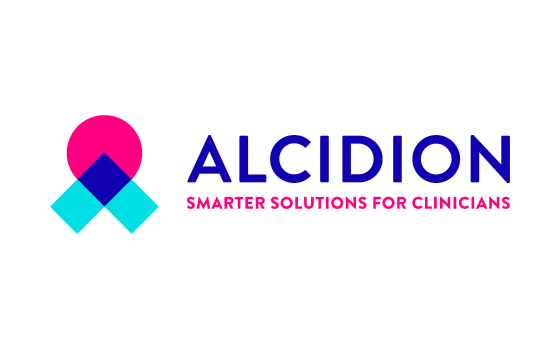 Nurses and doctors at South Tees Hospitals NHS Foundation Trust have remarked on substantial time savings and safer ways of working, just hours after the go-live of a new digital noting solution.
Nurses and doctors at South Tees Hospitals NHS Foundation Trust have remarked on substantial time savings and safer ways of working, just hours after the go-live of a new digital noting solution.
The deployment of Miya Noting is an important part of the trust's electronic patient record programme, which is responding to urgent priorities faced by clinical teams through the Alcidion modular EPR, Miya Precision.
On the first day of using the Miya Noting component, healthcare professionals said they were amazed by the hours of time saved.
One junior doctor said they had already saved an hour, whilst another clinician saved 30 minutes preparing for a ward round and 30 minutes on the ward round itself, due to the removal of paper-based processes. Nurses said they had far more time to care for patients after finishing assessments quickly.
Staff required just 15 minutes of training on the new system, which replaces manually intensive paper documents with digital forms easily accessible online. Busy teams no longer need to search for forms, and digital alternatives only display relevant questions. Standardised data collection, enhanced auditability, reduced risk of errors and legibility issues, and a more sustainable means of collecting data are amongst the benefits being realised.
Initial deployment took place on the older person’s medicine ward at The James Cook University Hospital - a regional major trauma centre and tertiary hospital in Middlesbrough. On the first day of use, 141 forms were completed digitally, with zero forms remaining on paper.
Following positive reception, further testing will now take place in trauma orthopaedics, to ensure the system is configured to meet both medical and surgical needs, before a trust-wide rollout.
Lindsay Garcia, interim deputy chief nurse and chief nursing information officer for South Tees Hospitals NHS Foundation Trust, said: "This is a day to be remembered on our digital journey. The positive feedback has already been overwhelming, with staff excited about the potential of systems that talk to each other, and that make their lives easier as they work hard to deliver exceptional care for patients. Staff have told us this is so easy. This is about delivering technology that supports nurses and doctors to get it right for their patients."
Miya Noting integrates with other components of the trust’s EPR, further reducing data administration. Digital collection of data also allows important tasks to be populated on electronic journey boards in real-time, supporting more timely completion of tasks and effective discharge.
Healthcare professionals have already benefitted from the patient flow, electronic observations and assessments, electronic prescribing and medicines administration, and Smartpage messaging modules of Miya Precision. Each has been well received by healthcare professionals at the trust.
Lynette Ousby, UK managing director for Alcidion, said: "South Tees Hospitals continues to provide strong evidence that an agile and modular approach to an EPR can be extremely effective. We are working in partnership with the trust to meet the actual needs of staff, not just the needs health tech vendors think exist. Our strategy has been simple: to listen, and to deliver the right things in the right order. Results emerging show this is working well and delivering impact."
About South Tees Hospitals NHS Foundation Trust
South Tees Hospitals NHS Foundation Trust is the largest hospital trust in the Tees Valley serving the people of Middlesbrough, Redcar and Cleveland, Hambleton and Richmondshire and beyond. The Trust runs The James Cook University Hospital in Middlesbrough and the Friarage Hospital in Northallerton as well as community services in Hambleton and Richmondshire, Middlesbrough and Redcar and Cleveland. The Trust has a workforce of around 9,000 providing a range of specialist regional services to 1.5 million people in the Tees Valley and parts of Durham, North Yorkshire and Cumbria, with a particular expertise in heart disease, trauma, neurosciences, renal services, cancer services and spinal injuries.
About Alcidion
Alcidion Group Limited (Alcidion) has a simple purpose, that is, to transform healthcare with proactive, smart, intuitive technology solutions that improve the efficiency and quality of patient care in healthcare organisations, worldwide.Alcidion offers a complementary set of software products and technical services that create a unique offering in the global healthcare market. Based on the flagship product, Miya Precision, the solutions aggregate meaningful information to centralised dashboards, support interoperability, facilitate communication and task management in clinical and operational settings and deliver Clinical Decision Support at the point of care; all in support of Alcidion’s mission to improve patient outcomes.
Since listing on the ASX in 2011, Alcidion has acquired multiple healthcare IT companies and expanded its foothold in the UK, Australia, and New Zealand to now service over 300 hospitals and 60 healthcare organisations, with further geographical expansion planned.
With over 20 years of healthcare experience, Alcidion brings together the very best in technology and market knowledge to deliver solutions that make healthcare better for everyone.